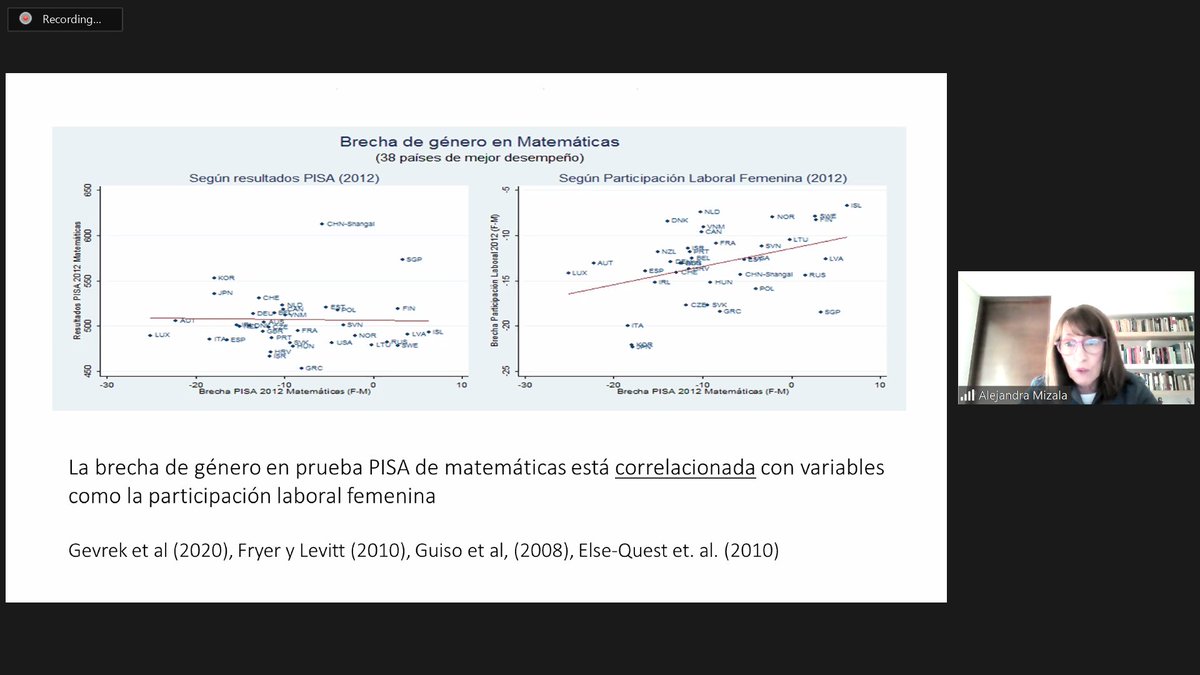
As part of the series of talks “Economic studies from a gender perspective” organized by the MIPP Millennium Institute and the Master in Applied Economics (MagCEA), Alejandra Mizala – Director of the Institute for Advanced Studies in Education and Center for Advanced Research in Education (CIAE), and academic at the Department of Industrial Engineering, Faculty of Physical and Mathematical Sciences – shared with the audience the results of her research on gender stereotypes in education and career choices.
In her presentation, Mizala reviewed two of her studies that reflect different aspects of this problem. First, how the biased expectations of future teachers towards students of certain characteristics influence them. More precisely, it was determined that gender and socioeconomic level do influence teachers’ expectations about their students, who in turn, internalize them. In addition, only in the case of girls, teachers tend to extrapolate poor results in mathematics to overall performance.
The second study highlighted the factors that influence university applications for men and women, and the gender differences that exist when choosing a career. The conclusion was that bringing the preferences of men and women closer together, would contribute to reducing the gender gap without loss in the distribution of talent. In addition, and from the same academic results, men are 25% more likely to choose selective careers such as engineering or science and technology fields. “Therefore, it has nothing to do with performance but it may have to do with socialization and stereotypes,” stated the academic.
Finally, Alejandra Mizala pointed out how gaps in education translate into segregation in the labor market, which ends up affecting – in part – income differences between men and women. “This is not something that benefits only women, because there is loss of talent in male-dominated careers and men’s talents are also lost in female-dominated careers. On the other hand, gender equity and its impact on female participation promotes more inclusive economic growth”, she concluded.
MIPP Chile 2025